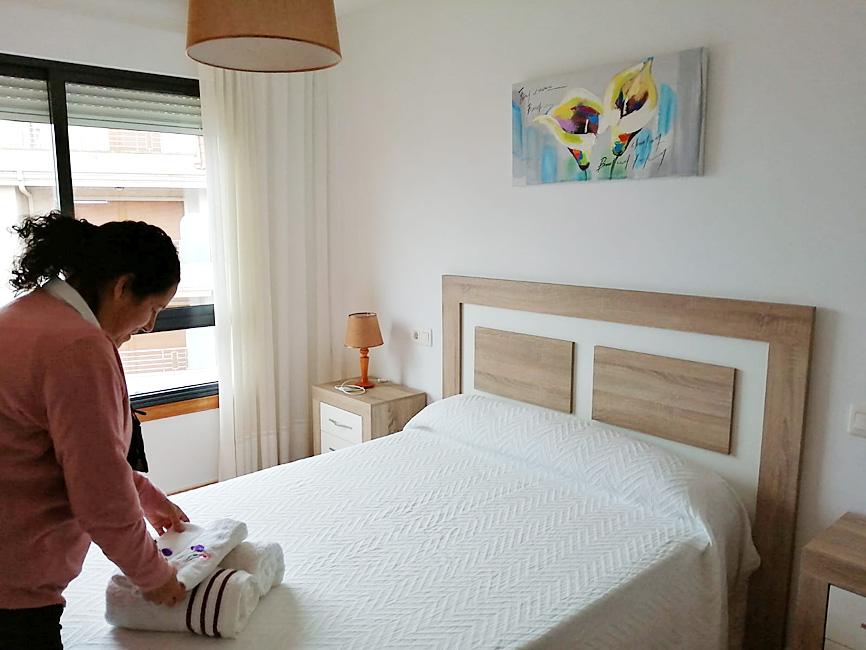Airbnb Inc has priced its long-awaited initial public offering (IPO) above a marketed range to raise about US$3.5 billion, seizing on investor demand for a home-rental business roaring back from a COVID-19 pandemic-fueled slump.
Its IPO came just hours after DoorDash Inc almost doubled from its listing price in its debut trading session, adding to a flurry of consumer-facing Web-based companies going public this month.
Airbnb and its investors sold about 52 million shares on Wednesday for US$68 each after marketing them for US$56 to US$60 apiece, it said in a statement.

Photo courtesy of Perla Requejo, Reuters
At that price, Airbnb has a fully diluted value of about US$47 billion, which includes employee stock options and restricted stock units.
Airbnb’s listing adds to what was already a record year for IPOs, with more than US$163 billion raised on US exchanges, according to data compiled by Bloomberg. That includes DoorDash’s US$3.37 billion offering.
Other companies lined up for IPOs this month include video-game company Roblox Corp, installment loans provider Affirm Holdings Inc and ContextLogic Inc, the parent of online discount retailer Wish Inc.
DoorDash’s first-day surge propelled its valuation, including employee stock options and restricted stock units, to about US$71 billion.
San Francisco-based Airbnb has seen a bounce back in domestic bookings since the early days of the COVID-19 pandemic crushed demand.
In a letter to shareholders, the three cofounders said the 10 months since the pandemic started have been “the most defining period since we started Airbnb.”
In the past 13 years, Airbnb has totally upended the travel market, given people an opportunity for income and created a whole new market for services related to real estate and hosts.
Today, Airbnb is one of the biggest travel companies in the world.
For the first nine months of this year, Airbnb had a net loss of US$697 million on revenue of US$2.5 billion, compared with a net loss of US$323 million on revenue of US$3.7 billion for the same period last year, according to its filings.
Airbnb’s offering is being led by Morgan Stanley and Goldman Sachs Group Inc.
Shares of Airbnb were to begin trading yesterday on the NASDAQ Global Select Market under the symbol ABNB.

South Korea’s equity benchmark yesterday crossed a new milestone just a month after surpassing the once-unthinkable 5,000 mark as surging global memory demand powers the country’s biggest chipmakers. The KOSPI advanced as much as 2.6 percent to a record 6,123, with Samsung Electronics Co and SK Hynix Inc each gaining more than 2 percent. With the benchmark now up 45 percent this year, South Korea’s stock market capitalization has also moved past France’s, following last month’s overtaking of Germany’s. Long overlooked by foreign funds, despite being undervalued, South Korean stocks have now emerged as clear winners in the global market. The so-called “artificial intelligence

NEW IDENTITY: Known for its software, India has expanded into hardware, with its semiconductor industry growing from US$38bn in 2023 to US$45bn to US$50bn India on Saturday inaugurated its first semiconductor assembly and test facility, a milestone in the government’s push to reduce dependence on foreign chipmakers and stake a claim in a sector dominated by China. Indian Prime Minister Narendra Modi opened US firm Micron Technology Inc’s semiconductor assembly, test and packaging unit in his home state of Gujarat, hailing the “dawn of a new era” for India’s technology ambitions. “When young Indians look back in the future, they will see this decade as the turning point in our tech future,” Modi told the event, which was broadcast on his YouTube channel. The plant would convert

‘SEISMIC SHIFT’: The researcher forecast there would be about 1.1 billion mobile shipments this year, down from 1.26 billion the prior year and erasing years of gains The global smartphone market is expected to contract 12.9 percent this year due to the unprecedented memorychip shortage, marking “a crisis like no other,” researcher International Data Corp (IDC) said. The new forecast, a dramatic revision down from earlier estimates, gives the latest accounting of the ongoing memory crunch that is affecting every corner of the electronics industry. The demand for advanced memory to power artificial intelligence (AI) tasks has drained global supply until well into next year and jeopardizes the business model of many smartphone makers. IDC forecast about 1.1 billion mobile shipments this year, down from 1.26 billion the prior

People stand in a Pokemon store in Tokyo on Thursday. One of the world highest-grossing franchises is celebrated its 30th anniversary yesterday.